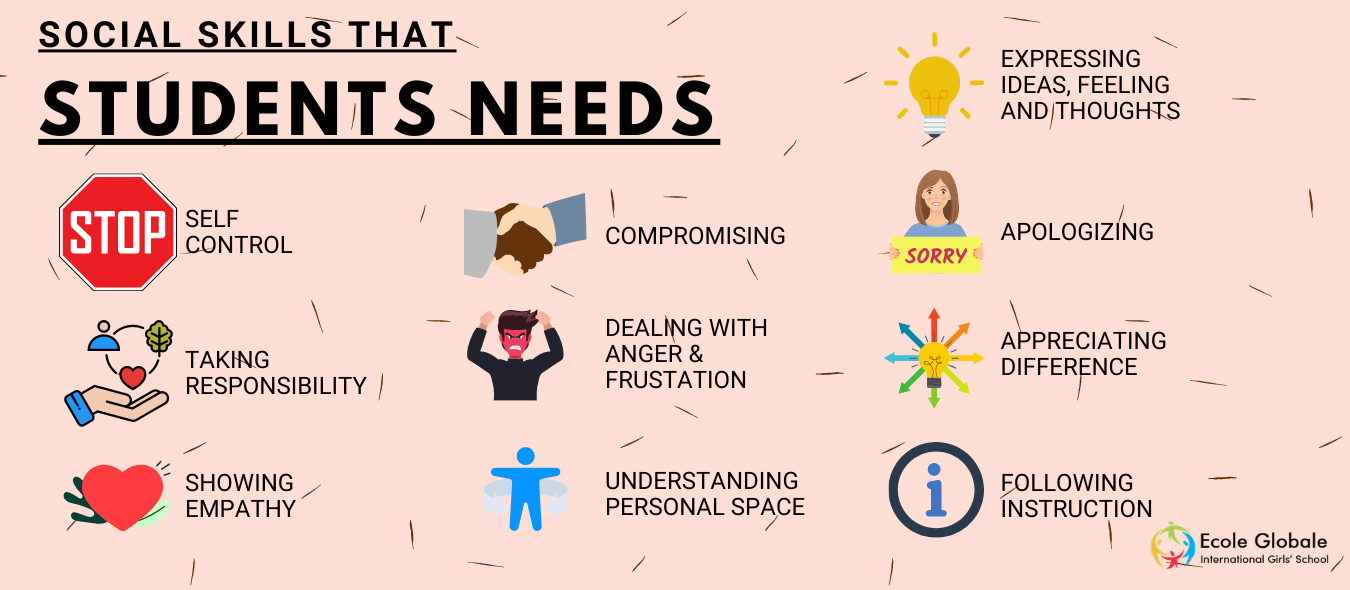Human is a social animal who is in constant need of companionship and communication with other people. Humans, unlike other animals, have the ability to create relationships with other human beings based on the understanding and blood relations. To generate relationships, one needs to have decent social and interactive skills.
Social skills are not something that human beings possess naturally. It gets developed over time. These skills refine with experience as one grows older. They are quite complicated as they need understanding and analysis1 of real- life situations and the mental state of the other person. many schools in dehradun teach social skills techniques to their students.
Children need to develop these skills at a young age to establish connections in the classroom and school with other students. Mostly, children are able to form friendships, but several students have a hard time interacting with the teachers and their classmates. For such students, teachers need to provide the necessary guidance and attention to develop their social skills.
Social skills are needed throughout the lifetime and to obtain success in the corporate world. If your child faces serious issues in their social interaction skills they consult a therapist or a doctor. Talk to your child about the situation and try to provide them with the help needed.
Children with health issues like autism and ADHD can have such problems. Consult a doctor and provide necessary guidance to your young one.
1.RESPECTING PERSONAL SPACE
Children are mostly unaware of the concept of privacy and personal space. They tend to interfere with other people without considering how they might feel in the situation. Hence, it is important to teach the children about the privacy and personal space of the other person. Children also do not know that saying something might offend a person. For this they need to develop their understanding. All these aspects are also a major part of social skills development.
Create rules around the house like, knock on the door before entering into other people’s room, ask for permissions etc. These simple rules are necessary that will educate your child about privacy. If a child grabs things without permission and interferes with people’s privacy, establish the consequences of such actions. Gradually, your kid will understand and stop acting in this way.
WHAT CAN BE DONE
Tell your kids that people do not like being interfered unnecessarily. Tell them to maintain distance and avoid sneaking into their books or devices. Tell them to take permission before performing any kind of task related to the other person. Role- playing certain situations can help in this process.
2. CREATING EYE CONTACT
Eye contact is important for establishing a successful conversation. When you make eye contact with the other person, you indicate your engagement and attention in the conversation. Some students struggle while talking to the other person. If your kid is shy and does not like to be stared at, then you need to help them. Find out what is Bothering them and work together towards rectifying the situation. Educate them about the benefits of making eye contacts for effective and engaging interactions. Tell them that such behavior shows confidence.
HOW TO PRACTICE
Practice along with their kids. Encourage them to start conversations with other kids in the park. Be the ice- breaker if your kid is struggling. Analyze every situation and ask for your child’s feedback.
3. MANNERISMS
Basic etiquettes are crucial for an effective personality. Simply saying thank you and sorry, practicing the basic table manners and Saying thank you and please, using excellent table manners etc. will go a long way for your kids. Teachers and other kids will also be influenced by your child and will naturally feel more drawn to them.
Teaching manners is a standard part of the teaching process. But certain things like burping, putting a finger in your nose or ear, etc. should be taught at home. Teach the child to be polite, kind and grateful in every situation.
HOW TO PRACTICE
Be a role model to your kids and constantly educate them about the things through real -life situations. Provide them reminders and reprimand them if they indulge in inappropriate behaviors.
4. FOLLOW INSTRUCTIONS
Children who do not follow the rules are liable to face the consequences in the future. From getting punished, to redoing the school assignments, the ultimate sufferer will be the child. Develop this habit of following the instructions in your kid from a young age. Tell them about the importance and relevance of certain laws and why they needed to be followed.
HOW TO PRACTICE
Praise your child’s efforts for following the instructions. Do not overburden them with all the tasks in one go. Be polite and use kind words like “please pass me the glass” instead of saying “ fetch me a glass”.









